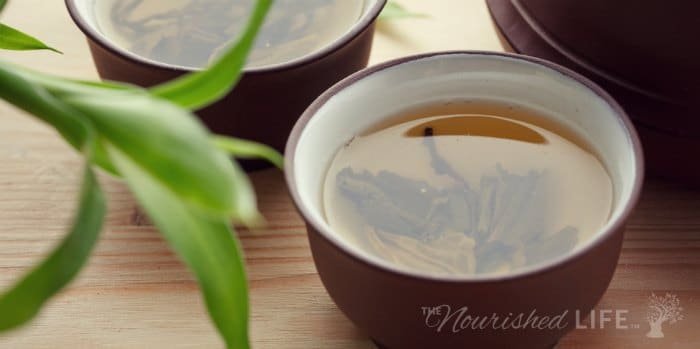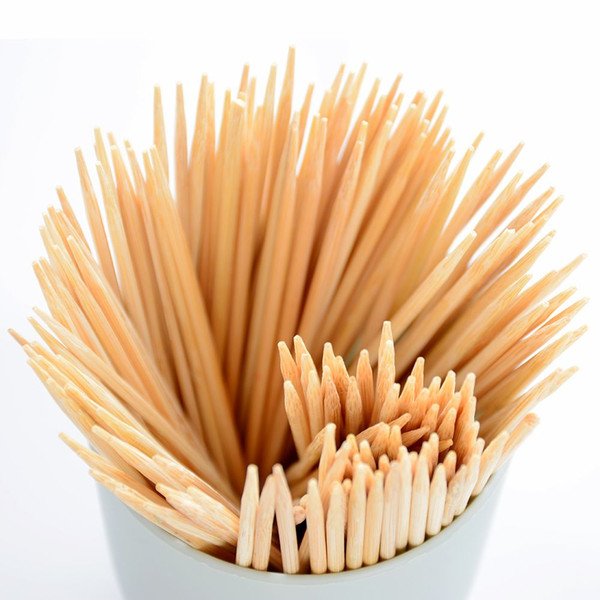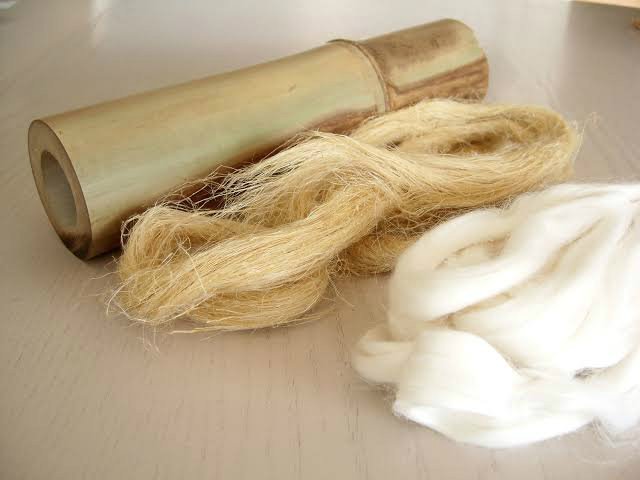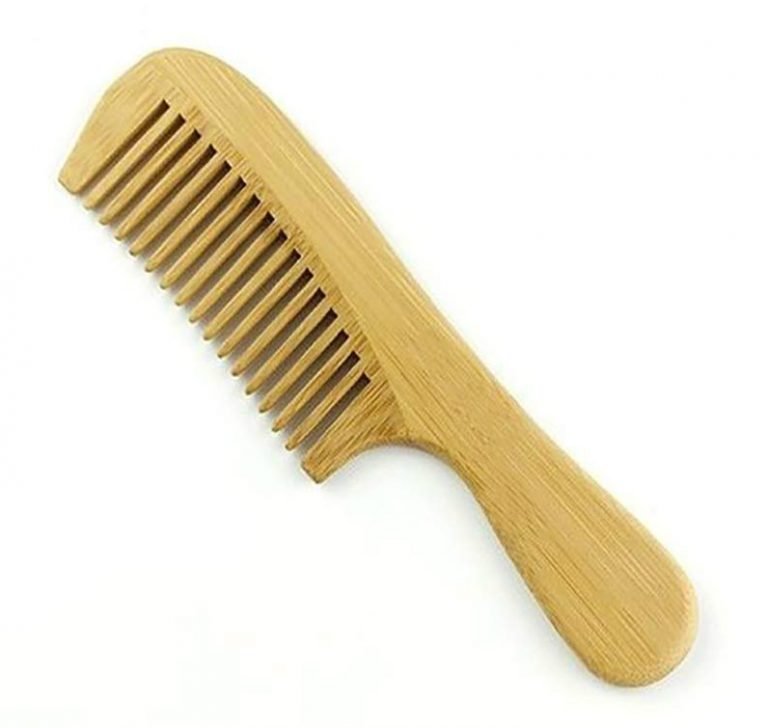Bamboo Tea for Hair Growth: Here is why

0Shares
Herbal teas have gained popularity over the years. The popularity is because these teas provide the users with multiple health benefits. One of the most common right now is bamboo tea. It might sound a bit strange when you think of bamboo trees offering tea. Yes, it happens. Today, we want to look at some of the reasons to use bamboo tea for hair growth. You might be surprised by the possible benefits a person can get with bamboo tea.
Why Bamboo Tea is Good for Hair Growth
 Photo credit: Bambooleaftea
Photo credit: Bambooleaftea
Bamboo tea for hair growth is something people have been trying for years. The best part is that it actually works. It means that you can grow your hair better if you keep taking several cups of bamboo tea daily.
So, why is bamboo tea good for hair growth? Well, it is because it contains an impressive amount of silica. It is among the highest amount of silica you can get from plants.
Why is silica important? Silica is a building block of collagen. Collagen as we know is an important protein in our body. It helps with proper growth of the hair and stronger bones.
Your hair contains 40% silica. It goes on to show that taking bamboo tea daily will help to improve the amount of silica getting into your body. The results are that you end up with strong and supple hair.
It is not just about silica as bamboo tea still has important vitamins essential for hair growth. Such vitamins include Vitamin C, folic acid, thiamine, pantothenic acid, riboflavin, and niacin. As you can see, you should have enough essential vitamins for the best hair growth.
Bamboo tea is still essential for detoxifying the body. As a result, there is reduced inflammation and thus the body functions better. One of the functions includes booting your hair follicles for better hair growth.
Health Benefits of Bamboo Tea other than Hair Growth
 Photo credit: MavCure
Photo credit: MavCure
You might have already gotten the idea that bamboo tea is good for hair growth because of the title. However, that is not the only benefit of the tea. Below are more health benefits of drinking bamboo tea more often.
It comes with antioxidants
Antioxidants are important for our health as they help in fighting the free radicals in the body. These free radicals can attack the body cells leading to various illnesses. Also, antioxidants are good for fighting any signs of aging and improve the overall functioning of the cells.
Having more antioxidants in the body helps with fighting multiple conditions such as heart disease, asthma, and cancer.
Good for weight loss
We live in a world where people would love to have a perfect body. It means they have to lose weight. The process of weight loss is not always easy, but bamboo tea can help.
So, how does bamboo tea help with weight loss? Those who have tried it for weight loss claim bamboo tea helps to ease any food cravings. You might go for several hours without thinking about food. With the reduction of food intake, you should start to lose weight.
Do not get excited just yet, as weight loss is a combination of various things. Bamboo tea is not a magic pill for weight loss.
Relieve stress and anxiety
There are many people right now dealing with issues of stress and anxiety. It can be job-related, among other things. Considering that herbal teas can deliver multiple benefits such as relieving stress and anxiety, we expect the same for bamboo tea.
Those who take bamboo tea claim that it helps to calm their minds and lower blood pressure levels. You should find such effects being great for your health. Still, bamboo leaves are high in potassium. Potassium is great for lowering blood pressure and keeping your heart rate within the healthy rate.
Can boost immunity
Your immune system is important for keeping you healthy all the time. Because of the many antioxidants you get from bamboo tea, you will also end up with a stronger immune system. With an improvement in the immune system, your body will handle any common illnesses such as cold and flu easily.
Detoxifying your body
Detoxifying our bodies more often is essential so that we have the best health. Many people might be skeptical about detoxifying, but it is an important process for your body. The anti-inflammatory and antioxidant properties of bamboo tea are essential for detoxifying your body.
After a detox process with bamboo tea, you will always feel healthier.
Digestive health benefits
Dietary fiber is essential if you hope to achieve the best digestive health. Lacking fiber in your diet can lead to various illnesses associated with a poor digestive health. When you take a cup of bamboo tea, it would have 4% fiber in it. As a result, it can prevent cases of indigestion, bloating and gas, among other issues.
How to Make Bamboo Leaf Tea
 Photo credit: Herbal Teas Online
Photo credit: Herbal Teas Online
To make bamboo leaf tea is straightforward. You just have to use the right type of water at an ideal temperature. You should have a flavorful tea in no time.
What is the right type of water?
When we say that you use the right type of water, some people might be confused about which water to use. The water that you use for your bamboo tea should be balanced water. Distilled water might make the tea taste flat and flavorless.
You need to use good quality spring water with balanced minerals. Depending on where you live, there should be plenty of such water. Still, you could opt for filtered tap water. It will still be great for making your tea.
The ideal water temperature
The ideal temperature for your bamboo tea is 205-degree F. Once you get your water to this temperature, simply add the bamboo leaves or tea bag. With this type of temperature, you can boil the bamboo leaves without the risk of burning them and end up with awful tea.
What about the steep time? This is something subjective depending on how you want to prepare the tea. Sometimes you might try to blend it with other teas to enjoy it even more. So, the recommended steep time is 7 minutes. It should be enough to get your tea ready.
As for the bamboo tea bag, a steep time of 5 minutes should be enough. Try playing around with the different times to see what you can get with each.
The quantity of bamboo tea
Many people who want to prepare bamboo tea would want to know how many leaves they should use for their tea to be great. Well, this is highly subjective to the preference of a person. Some might use more while others less.
For a regular size cup of tea then one tea bag of bamboo tea should be enough. For those who love strong tea, then drop in two tea bags at the same time.
If you have loose leaf bamboo, then use 1 to 2 teaspoons in your cup. Change the amount of bamboo tea that you use depending on your needs. You might have to use more if you want to get more health benefits such as hair growth.
Bamboo Tea Flavors to Enjoy
 Photo credit: You and Bamboo
Photo credit: You and Bamboo
Bamboo tea flavor is not going to win awards any time soon. This is because its flavor can vary a lot. It is a combination of several flavors you will taste while drinking it. Some describe it as slightly grassy. Considering it is from leaves, the grassy taste was expected.
Other than tasting grassy, it also has a slightly sweet flavor. This is something common with herb teas such as green tea. The sweetness is not the same as that you get in a fruit juice, but rather subtle sweet.
As much as you might taste a bit of sweetness, there is still a hint of bitterness in the flavor. The bitterness can be because of the steeping time and the amount of bamboo tea bag you have used. The good news is that it is just a hint of bitterness. You will still be able to drink the tea with no problems.
With all the flavors combined, you should find that bamboo tea has a smooth taste. No more worrying about the bitterness often associated with herbal teas.
As for the aroma, it is similar to the taste.
Blend Ideas for Bamboo Tea
 Photo credit: Matcha Source
Photo credit: Matcha Source
Blending your tea is essential if you want to experience other flavors. Bamboo tea on overall is not a powerful tea, so it should blend easily with other teas.
One of the most common options is to blend it with mint. You can use spearmint or peppermint to enjoy the taste of mint in the tea. Many people like mint leaves as they increase the general flavor quotient, making your tea taste better. With about ½ teaspoon of mint leaves, you should have a flavorful tea.
Another great option is the use of lemon ginger bamboo tea. The use of ginger in herbal teas is something common. In addition, the use of lemon gives the tea a nice citrusy punch. Even with the heat of ginger, you will enjoy the sweetness of bamboo tea.
If you have used green tea before, then you know that it comes with many benefits. You can now imagine combining the two. Green tea has similar flavors as it can taste grassy too. As a result, the two should complement each other.
That is not all, other options include bamboo hibiscus tea, bamboo anise tea, and much more. It should come down to what you think is ideal for you.
Side Effects of Bamboo Tea
 Photo credit: The Nourished Life
Photo credit: The Nourished Life
As much as bamboo tea is great for hair growth and other health benefits, it does also have a few side effects you should know about.
For pregnant or breastfeeding women, there is not enough information to show that bamboo tea might be safe for you. To be on the safe side, it is best to avoid using it until later when you are done with breastfeeding.
Anyone who has thyroid disorders should also consider staying away from bamboo tea. Such conditions include little thyroid function, goiter, or thyroid tumor. The prolonged use of bamboo tea for such people might make their conditions worse.
FAQs
Does bamboo tea contain caffeine?
Bamboo tea just like many other herbal teas, it does not contain caffeine. This should make it ideal for using at any time of the day.
Caffeine can easily affect the sleep cycle of some people. It should not be a problem if you are using bamboo tea.
Does bamboo tea contain sugar?
Bamboo tea is a sugar-tea drink that you can enjoy. If you want to improve its taste, you can use a bit of honey or sweetener. For someone who is afraid of their sugar intake, then they should consider using bamboo tea. It does not spike the sugar levels in your body.
How many calories are present in bamboo tea?
Bamboo tea does not have any calories. Well, let us just say not enough to be counted. It might contain trace calories which do not influence your overall caloric intake. For those who want a calorie-free alternative to their high calorie sodas, then this is a nice option to consider.
Can bamboo tea break a fast?
No. Considering that bamboo tea is calorie-free, then it should be ideal for anyone doing intermittent fasting. It is during the fasting window that you can take calorie-free drinks and tea is one of them.
Is bamboo tea ketogenic friendly?
Yes. Anyone doing a ketogenic diet should find that bamboo tea is an ideal option for them. Since it does not contain carbohydrates, you do not have to worry that bamboo tea would kick you out of the ketosis state.
How much bamboo tea should you take per day?
There is no strict limit to what you should drink daily in terms of bamboo tea. It should come down to what works for you. Well, moderation is always nice to keep in mind. Having two to three cups per day should be enough for most people.
In Summary
Bamboo tea is among the best herbal teas you can have today. It is good for boosting your hair growth and it does deliver other amazing health benefits. Make sure that you prepare it right within the best recommended temperature. The result is a cup of tea that you can enjoy at home. You can always combine bamboo tea with the other types to experience many more flavors.
0Shares






